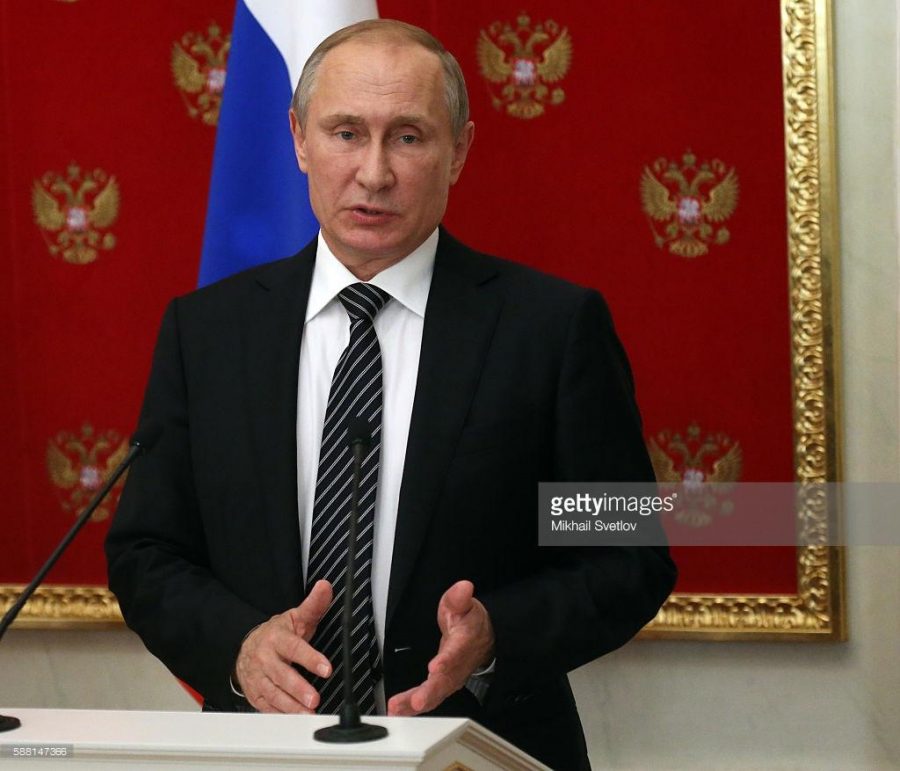If there is anything that binds nearly all of us together, it’s the shared experience associated with listening to stories of “duck-and-cover” drills held during the Cold War era. The threat from half a world away, inspired enough fear that the United States devoted numerous resources to adequately prepare citizens for invasion and utter destruction. Yet, no longer would it be rational to consider Russia an immediate adversary; times have clearly changed. Or have they? The notion that our former Soviet enemy is no longer globally powerful or a political threat is naive and a fallacy. Indeed, a large comeback has been made in the last decade under the helm of Vladimir Putin, who has become the face of Russia’s staunch approach towards international politics.
In December of 1994, Ukraine and Russia collectively signed a document called the “Budapest Memorandum.” The rather historic signing essentially boiled down to this: Ukraine would surrender its nuclear weapons to Russia, and in exchange, it would be recognized as independent from the former Soviet Union. Flash forward to November of 2013, however, and one finds Ukraine in an exceedingly turbulent state of affairs. In Kiev, protesters slowly made their way to president Viktor Yanukovych’s personal home, following his decision to not join the European Union. Widely speculated to be a decision influenced by Russia to keep Ukraine within its political sphere, President Yanukovych fled from the rapidly dissolving nation in February of 2014. In his wake, a new leader was promptly elected by the citizens — President Oleksandr Turchynov. With strong ties to the EU, the citizens of Ukraine felt that they were well represented.
However, Russia viewed this chain of events not as a ceremonious demonstration of democracy, but as a distinct opportunity to advance existing political desires. In a declaration aired on every major news station here and abroad, Russia announced that it would not recognize the new leadership of Ukraine. This in turn effectively nullified the Budapest Memorandum signed two decades before. Thus, in February of 2014, Russia decided to invade Crimea, annexing the region from Ukraine. Between March and April, Russia held a “vote” for the citizens of Crimea to decide if they’d like to join them, with an ensuing claim of ownership over the entire area. This moment in history was not only when Russia defied the rest of the developed world, but regained its position on the global stage to boot.
Since that point, Russia has taken several decisive steps to create a lasting impact. They’ve begun lining up troops on the borders of Ukraine, seemingly in preparation for invasion. While it’s distinctly challenging to predict if Russia would ever take this sort of action, it is fair to say that recent events certainly indicate trouble forming. Somewhere between 20,000 to 40,000 new troops have been placed at strategic locations between Ukraine and Moscow, in addition to an uptick of military “snap drills,” which are meant to decrease response time. In Ukraine, so much political pressure is felt from Russia that current president Poroshenko told CNN that Russia essentially wants “the whole Ukraine to be part of the Russian Empire.”
These are not the only instances in which Russia has made diplomatic headlines. Estonia, Latvia and Lithuania are all feeling mounting pressure from their large eastern neighbor, and have asked NATO to reinforce their positions. Russia also prevented Georgia from joining forces with NATO, despite this being an action frowned upon by numerous governments. It has also inserted itself in the past into Iranian nuclear weapons discussions, and has significant ties to Syria’s president, Mr. Bashar al-Assad. Indeed, the Russia that once failed to secure a position on the face of any newspaper is certainly finding its way back to the headlines.
The reach of Russia’s influence might extend well beyond their military presence on the ground. After a flurry of emails released through WikiLeaks detailed widespread corruption in the DNC’s hierarchy, U.S. state officials found themselves scrambling to determine who effectively forced the resignation of DNC chairwoman Debbie Wasserman Schultz. The widespread consensus now is that competing Russian intelligence forces were the likely suspects for the release of the information. While this is a topic still widely under debate, it inevitably leads one to wonder: could Russia be attempting to influence the political affairs of the U.S.?
Which brings us back to the growing threat that modern-day Russia poses to the rest of the world. While it would be outlandish to accuse the former Soviet Union of planning an attack on our own soil, it wouldn’t be unimaginable to see an invasion of Ukraine. Why else would they be amassing an army on the border of the much smaller nation? And despite the current sanctions on Russia, president Putin still holds a remarkably high approval rating, indicating obvious command of the respect of his own people. Indeed, the growing power of this formerly idle nation deserves the immediate attention of leading officials and citizens alike, as the reemergence of Russia as a global superpower is certainly in motion. Where this will lead, however, has yet to be fully realized.


